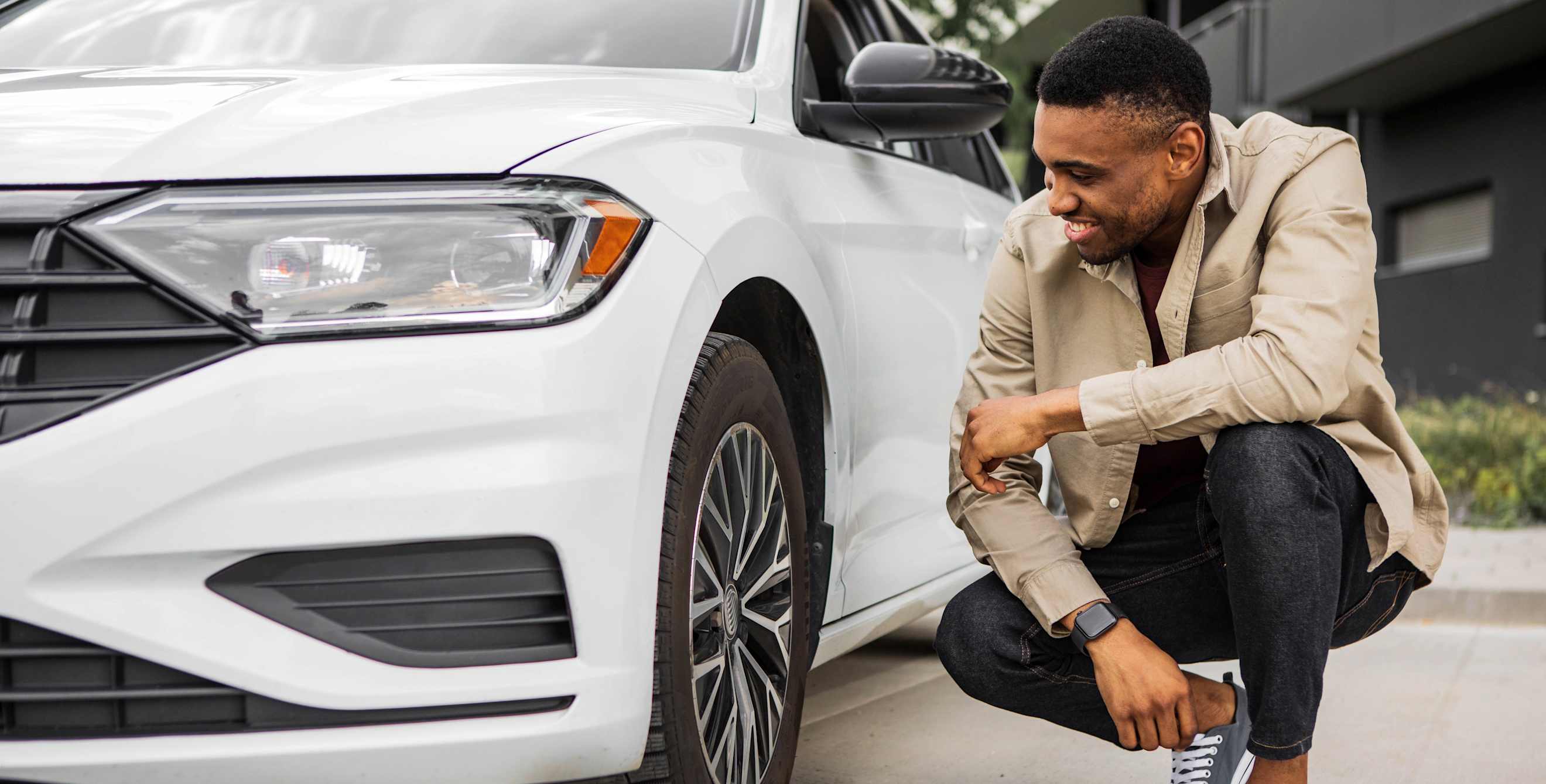
Should You Pay Off Your Auto Loan Early?
Thinking about paying off your car? Here’s what to know first.

Financial advisers say you shouldn’t borrow money to buy a depreciating asset, yet about 80 percent of new-car buyers take out financing, even though vehicles start losing value the minute they leave the lot.
As loan terms stretch longer—the average is now almost six years—more drivers are “upside down” on their vehicles, meaning they owe more than their car is worth. These owners may have to come up with the difference in cash if their car is stolen, totaled, or they want to sell it or trade it in for a new car.
With all that in mind, should you pay off your car loan early if you can? The answer depends on your interest rate, other debts, and your overall financial situation. Here’s how to decide.
The Most Important Things to Consider
If you already have six to 12 months of living expenses in cash and short-term savings for emergencies, paying off debt can be smart. Paying down a loan with a 6 percent interest rate is like getting a guaranteed 6 percent return on an investment. That’s not an easy rate to match elsewhere without taking some risk.
If you have multiple loans, “you may want to pay off your highest-rate debt first,” says Heather Liston, a certified financial planner at Clarity Financial in San Francisco. “Get rid of credit card debt first; your car loan would probably be next in line.”
Before you buy a car, you should ideally know if you can retire your car loan early by making one payment for the full balance, paying several partial lump sums, or increasing your monthly payments. Then, make sure your lender will apply the extra payments to the principal. Ask how you need to do this and check to make sure it’s being applied correctly.

Why It May Be Beneficial to Pay Off Your Auto Loan Early
Save on interest.
Most auto loans are “simple interest.” When extra payments are applied to the principal, the interest is recalculated based on the declining balance. You’ll still have to make the existing required monthly payment, but you’ll pay the loan off sooner, saving money in the long run.
Suppose you borrowed $25,000 at 6.5 percent for six years. Although your monthly payment will always be $420.25, in year one, you will pay a total of $1,521 in interest and $3,522 in principal. In year six, you will pay just $173 in interest and $4,870 in principal.
Now suppose that starting in year two, you add an extra $100 to your monthly payment. You’d pay off the loan 13 months sooner and save $838 in interest. If you paid the entire remaining balance after the first year, you’d save $3,737 in interest.
To see how much you could save, try an auto loan payoff calculator.
Lower your debt-to-income ratio.
Prepaying a car loan will lower your debt-to-income ratio, which is a major factor when you apply for a mortgage. If you’re planning to buy a home, a lower ratio could land you a better mortgage.
Get right-side up.
If you’re upside down in your loan, you may have added Guaranteed Auto Protection coverage to your automobile insurance policy. GAP coverage generally pays your lender the difference between your car’s market value and the remaining loan balance if the car is totaled or stolen. If paying down your balance gets you right-side up, you can cancel GAP coverage.
Auto dealers sell something similar, often called a GAP waiver. Buyers usually pay a lump sum upfront, which is added to the loan. You can often cancel this coverage at any time and get a pro-rata refund of the unused portion, says Rosemary Shahan, president of Consumers for Auto Reliability and Safety in Sacramento. Some states—including California, Nevada, Utah, and Wyoming—have made it easier for consumers to get such refunds.
If you don’t have GAP coverage, getting right-side up will eliminate the risk it’s designed to mitigate.
Clear the vehicle’s title.
The sooner you pay off your car, the sooner you should become its legal owner and get a clear title in your name, making it simpler to sell, Shahan says.
Get peace of mind.
Paying off debt can provide psychological benefits, such as less stress and greater self-confidence. Some money experts recommend paying off your debt in order from smallest to largest regardless of interest rate.
Although this approach—nicknamed the snowball method—gives you the quickest psychological boost, working from the debt with the highest interest rate down to the lowest rate debt “is usually the smartest financial move,” says Luke Dean, associate professor of financial planning at Utah Valley University. But you should also factor in the length of loan when considering which approach is best for you.

Potential Disadvantages of Paying Off a Car Loan Early
Your loan may have penalties and precomputed interest.
Read your loan documents carefully to see if your loan has a prepayment penalty or uses “precomputed” instead of simple interest. These features could reduce or eliminate your savings from early repayment.
You could better use the funds.
If your car loan’s interest rate is lower than what you could earn on a high-yield savings account or certificate of deposit, the savings account or CD is a better place to stash extra cash.
Paying off a home loan could also be a better use of funds, Dean says. Because it’s usually stretched over 30 years, the percentage of monthly payments going to interest is far higher in the early years than it is with a car loan.
With a 30-year fixed-rate mortgage at 6.5 percent, in year one, 85 percent of your payment will go toward interest and only 15 percent to the principal. In fact, you will be paying more interest than principal for 19 years.
Contrast that with the six-year, 6.5 percent car loan, where only 30 percent of your first-year payment goes toward interest and 70 percent toward principal. (For comparison, use a loan calculator with an amortization schedule.)
“You get a better bang for the buck” making extra payments on the home loan, Dean says. It puts a “lot more money toward principal than you usually get in the early years,” which has residual benefits over the life of the mortgage.
And if you’re paying private mortgage insurance because you put less than 20 percent down on your home purchase, making extra principal payments might allow you to cancel this insurance earlier than you otherwise could.
On the other hand, interest on a home loan is generally tax deductible if you itemize deductions; car-loan interest is not.
Your credit score may temporarily drop slightly.
Paying off a car loan could have a small, temporary negative impact on your credit score, especially if it’s your only installment loan. Scoring formulas like to see a mix of installment loans (with fixed monthly payments) and revolving debt (like credit cards).
If you’re a young person with limited credit history, having a credit card or car loan and paying it off diligently can help build your credit score. If you already have credit cards and student loans, “more debt can be a negative,” Liston says.
The Big Picture
“Using an extra $100 to pay down debt or invest it are both productive solutions and beat letting it burn a hole in your pocket,” Dean says. There’s a saying, he added: “A car is most valuable when it’s paid off.”